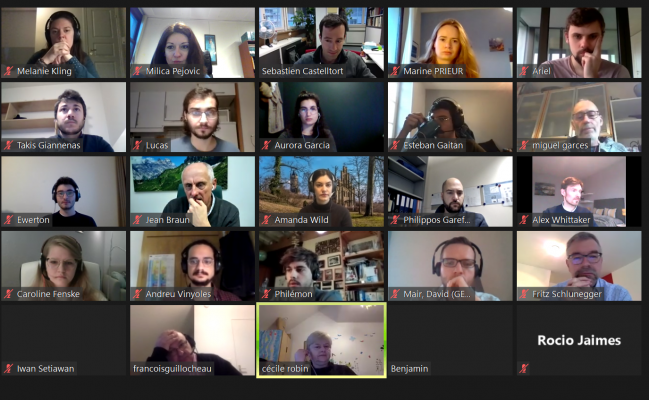Dragonstone 1
19 Jan 2021

Dragonstone 1 was held online from 11 to 15 January 2021. The main organisers of the workshop were the University of Rennes 1, the University of Geneva and GFZ Potsdam. Four lecturers, who are all recognised S2S experts, were François Guillocheau, Sebastien Castelltort, Jean Braun and Cécile Robin. Dragonstone 1 delivered at the onset of the program the essential concepts and big picture overview of the scientific objectives and power of the S2S approach through a combination of class-room lectures, essential literature reviews, computer modeling hands-on and experiments to manipulate concepts.
The online training kept the promise of offering a comprehensive course on the S2S fundamentals, covering a wide range of topics. The topics addressed during the five-day training were: drainage networks, fluvial erosion and sediment transport models, steady state and response to perturbations, equilibrium times, lags and buffers, complex behaviour (autogenic) in S2S segments, scales and natural variability, grain size trends, sequence stratigraphy, driving forces, lithospheric responses. Dragonstone 2 field trip will be organized in summer 2021, complementing the theoretical part of the training. Dragonstone 2 will provide the participants with a unique source-to-sink field course in exceptional exposure of the southern-Pyrenees: from alluvial fans of the northern Tremp basin all the way down to deep basinal turbidites of the Zumaya area, following marker timelines such as the PETM, the EECO and the MECO.



